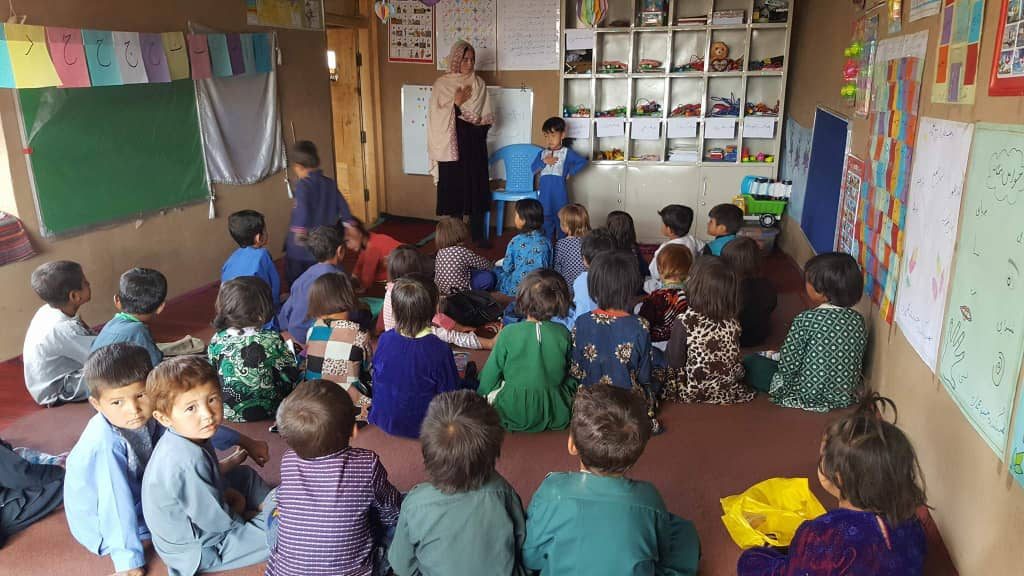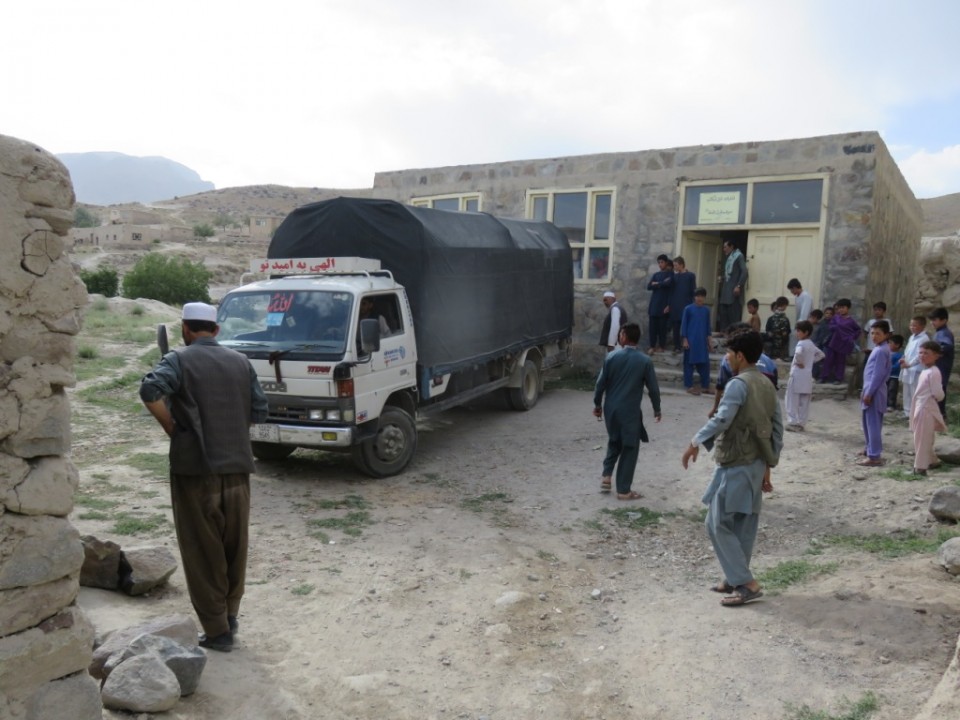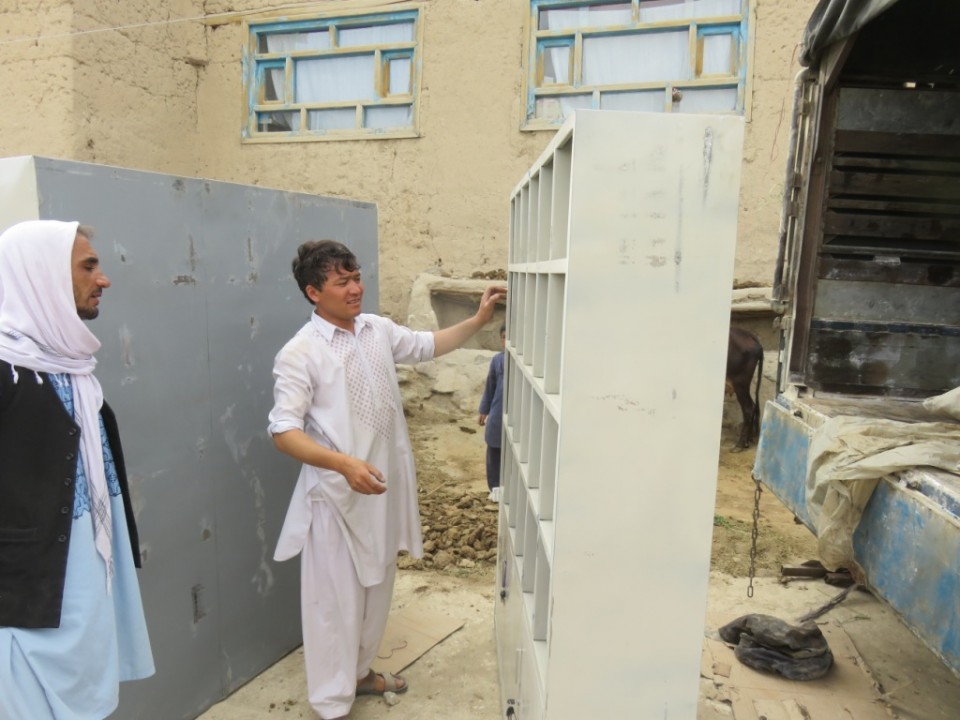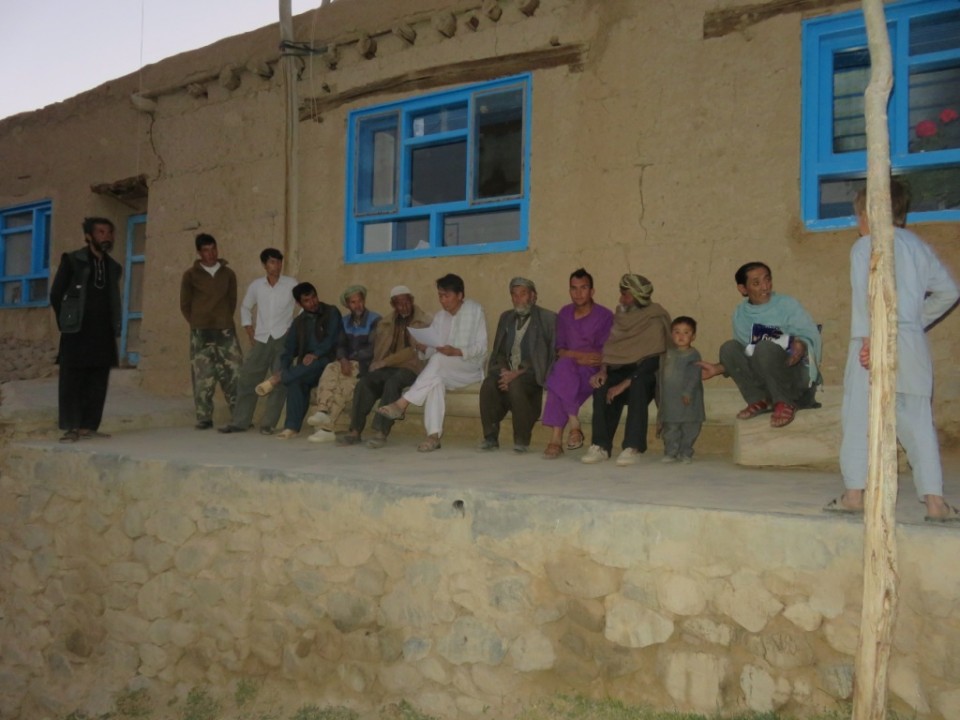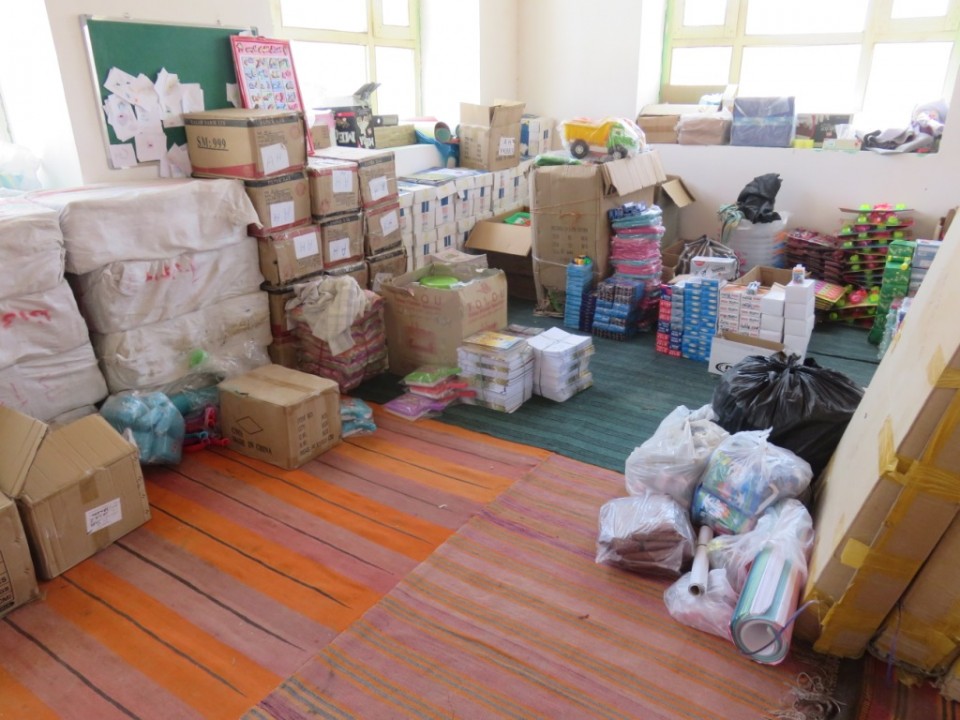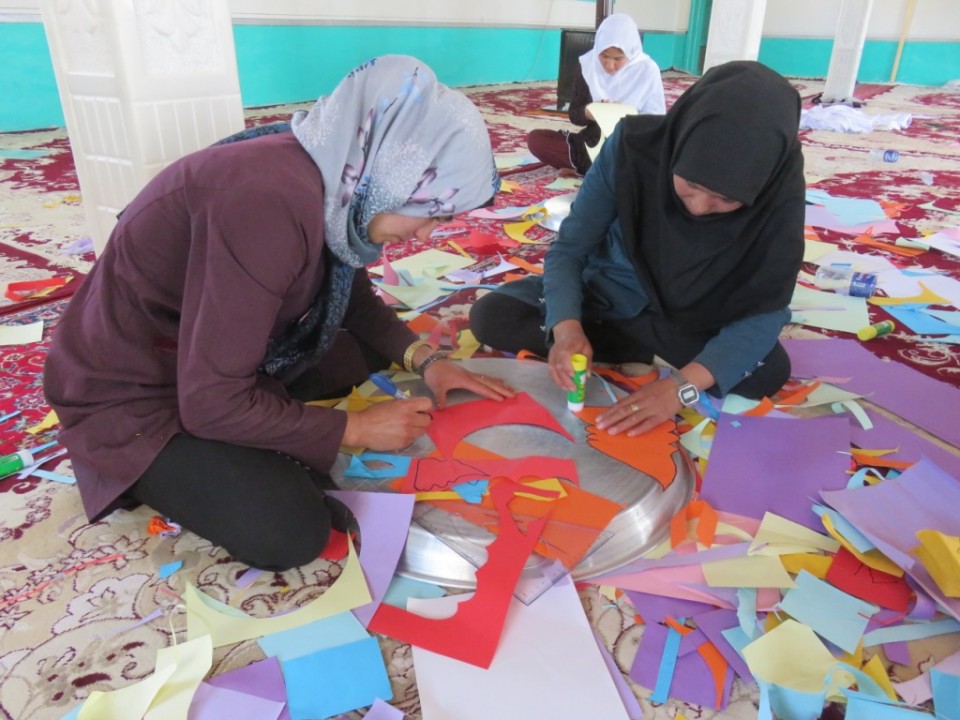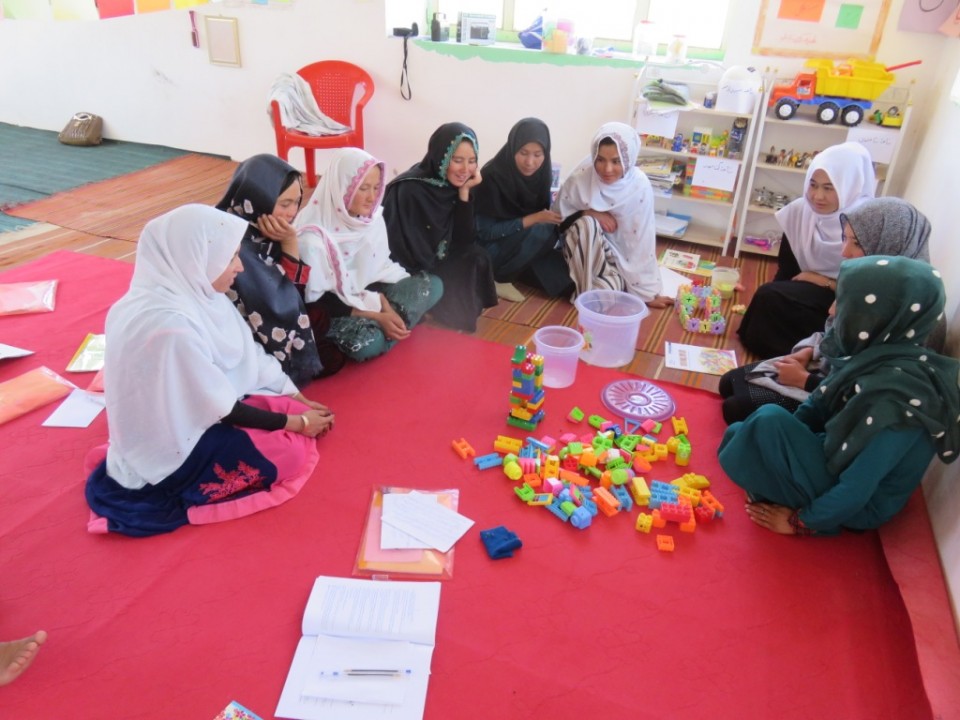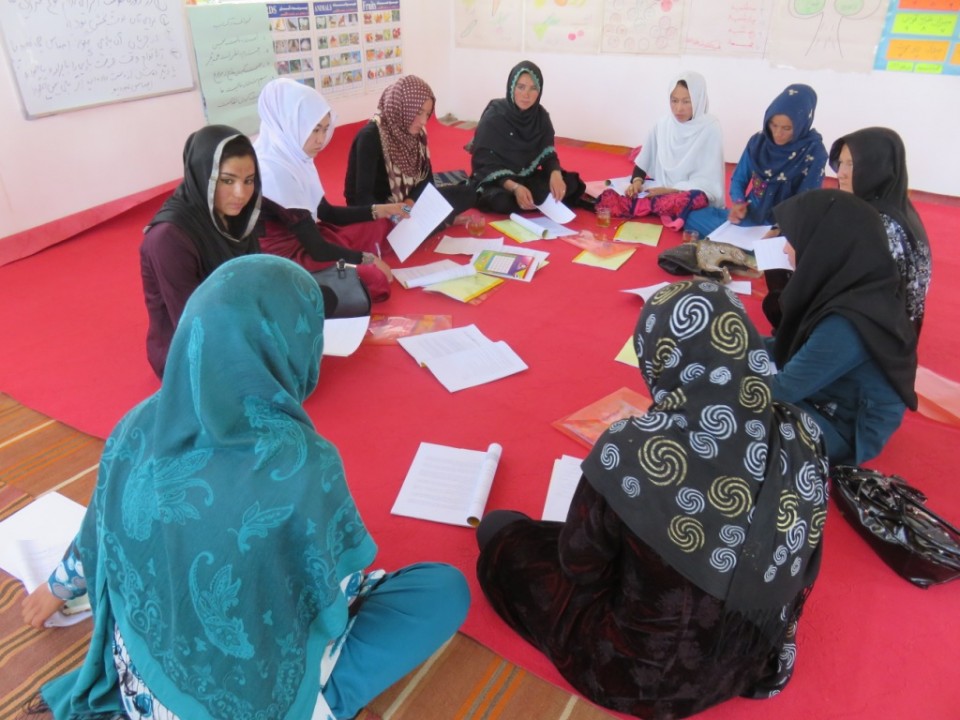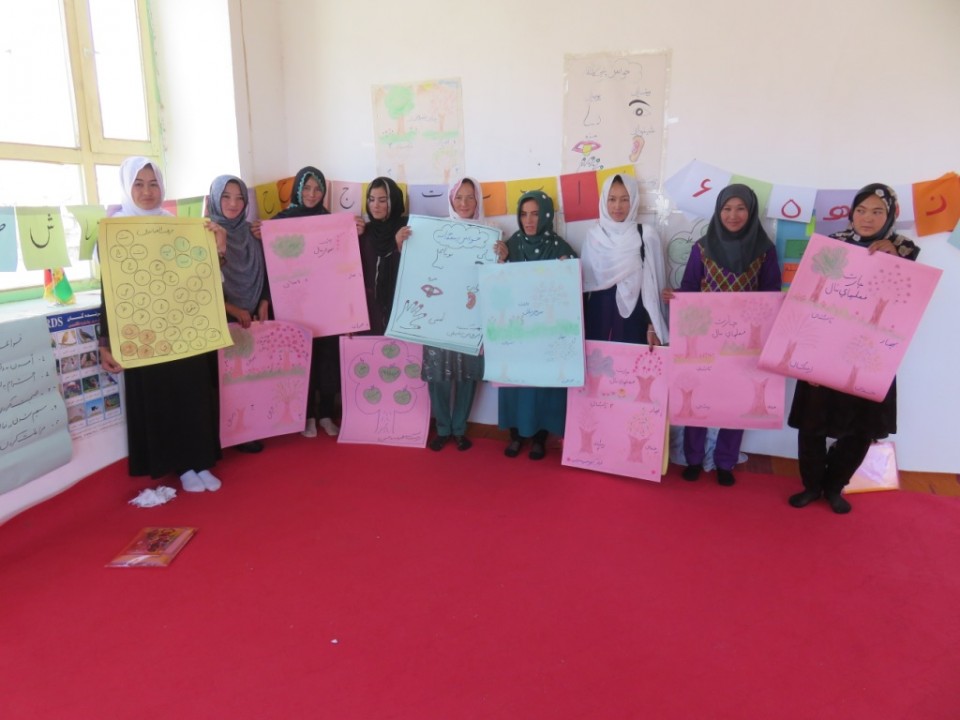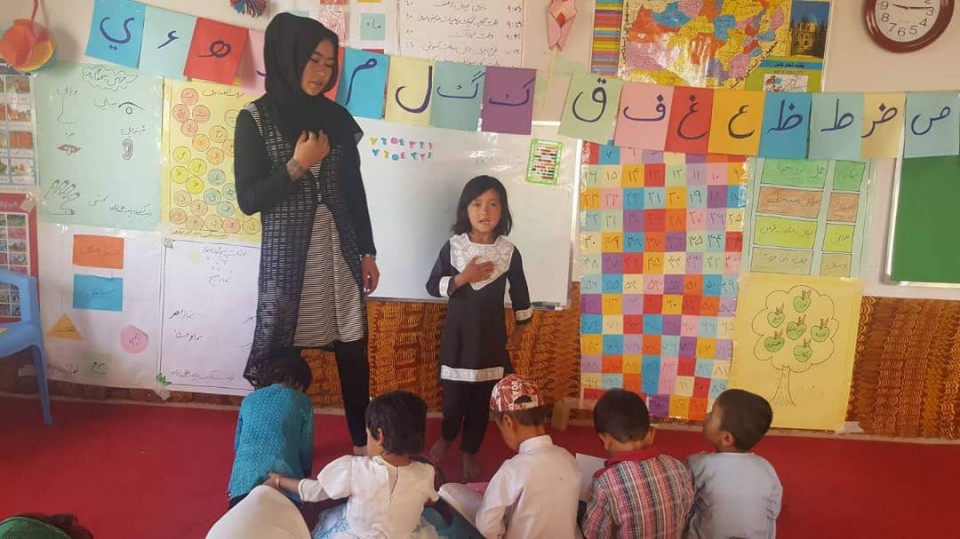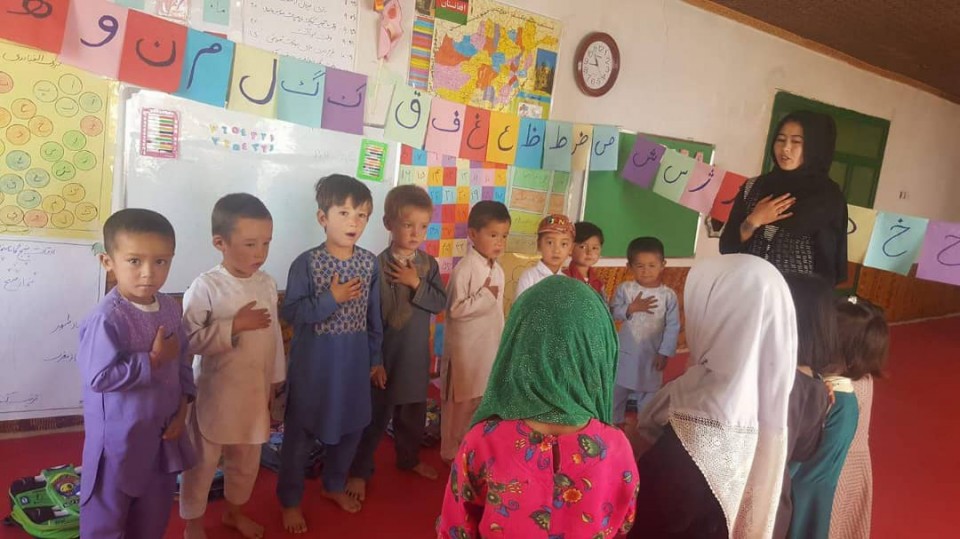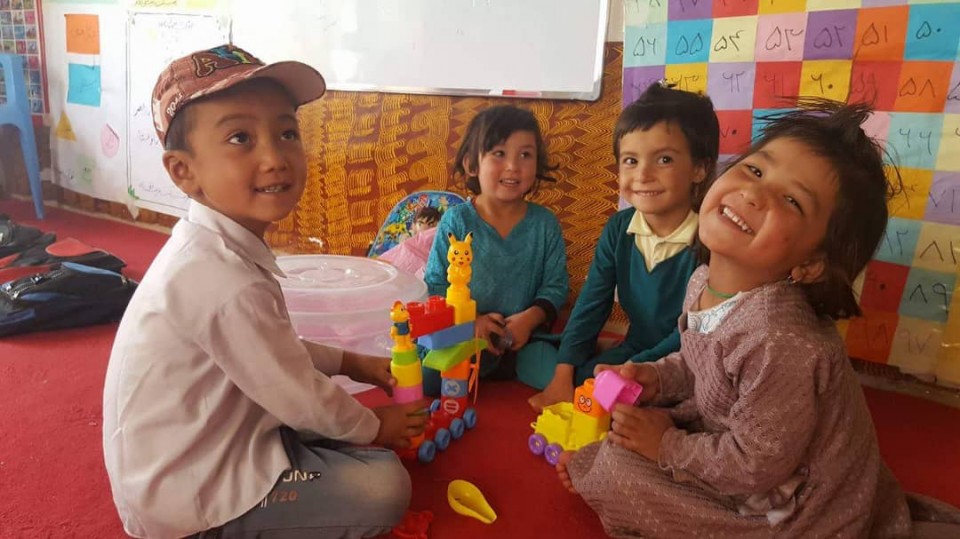While most children in the northern hemisphere are in the middle of their summer holidays, 180 young children aged 4 to 6 have started their first school year this July.
Preparation of equipment
Nai Qala’s president, Taiba Rahim, and the Kabul team have been very busy these past few weeks. Several hundred kilos of material were collected in Kabul to equip the classes.
Chairs, shelves, toy boxes, white boards but also carpets, all multiplied by 7, were sent to 7 villages in the mountainous regions of Ghazni (close to the schools of Sada, Ghow Murda and Nai Qala) .
In addition to furniture, large amounts of school supplies were also purchased and transported; these are, among others:
- dozens of kilos of wooden blocks made especially by local carpenters;
- various toys, construction games, toy cars, dinner play sets, balls and much more;
- paper, cardboard, colored pencils, paint;
- basic hygienic material such as soaps, toothbrushes and toothpaste.
Nai Qala’s team, represented by Mr. Qeyam and Mr. Ali Reza were involved at 200% in setting up the classrooms, not only in Kabul where they carefully organized all the logistics and where they ensured that the purchased equipment was properly packaged to withstand the surprises of transportation, sometimes on very bumpy roads, but also in the field. Mr. Qeyam spent a full month in the villages to make sure that all the material had arrived and was properly distributed, and that each class was correctly set up. Each village is separated by a distance of 20 minutes to 1 hour by car; to connect the first to the last village, it takes 4 hours.
Accelerated training for teachers
After a recruitment process to which 55 candidates applied, the Kabul team selected 9 young women. These are girls graduated from the first 3 schools built by Nai Qala, often single or sometimes already married, and who have a university (or other) degree. As employment opportunities in these remote areas are minimal, the creation of early childhood education classes opens up new opportunities for work.
Ms. Zewar, one of the two teachers of the early childhood education classes opened in 2017, took the responsibility to organize a 3-day workshop and give some new pedagogical bases to the new recruits. Ms. Zewar herself benefited from a one-week workshop, followed by another on the job, before teaching the little ones. For young women, the workshop was the first experience of its kind.
In addition to the 3-day workshop, Ms. Zewar will coach, on a day to day basis, the new teachers in their respective classes. She will travel to each village, accompanied by an experienced driver, to encourage, guide and support each of the teachers in their new experience.
During the training workshop, the young women discovered some teaching materials but were also able to familiarize themselves with games and various toys. This training was also an opportunity to experiment for the first time toys, which they had not access to when they were young. A moving discovery!
Involvement of the local community
The involvement of the local community is essential to the project. Each community has made available the best room in the village to create appropriate learning conditions. In some cases, if the rugs brought by Nai Qala did not cover all the floors, the villagers provided the carpet to cover the missing parts. The community is very committed to installing the equipment, participating in its unloading and unpacking.
Each village eagerly awaited the arrival of Mr. Qeyam; the whole community of men, women and children gathered together, ready to help with the transportation of equipment, place the information sign at the roadside or arrange the classroom.
What is not visible
Setting up a project of this magnitude requires months of preparation. This represents indeed many visits to the central and provincial ministries, and hours of negotiations with the villagers that were necessary to ensure the sustainability of the project. An agreement has been signed with the government to ensure monitoring beyond the first 3 years of the project; agreements with each local community have been concluded to ensure the availability of the premises where the courses will be held.
Each organization operating in the field of education must involve the Ministry of Education since it is the gatekeeper of the national education plan. As a result, the government will monitor the progress of the project and make constructive suggestions. The Ministry of Education, through its provincial-level leadership, has committed to follow-up to ensure that the project works properly and is community based, and will manage the early childhood education classes in terms of human resources, after 2020.
Back to school
In total, 180 children participated in starting their first school year. The Nai Qala Early Childhood Education project concerns 9 classes in 9 villages: 7 new classes added to the 2 classes already initiated at the start of summer 2017.
The little ones, between 4 and 6 years old, will not only learn to read and write but also expand their imagination and develop through play and artistic activities. The early childhood education class is also an opportunity for these young children to socialize and learn some good manners and basic hygiene.
After a few days of classes, the feedback is already very positive. Parents say they have no problem waking their children early in the morning, which was not necessarily the case before the start of the school year. The inhabitants of the 9 villages are very happy and make sure that the program is going well. The teachers are super motivated and the joy is shown on the faces of the children.
To learn more about Nai Qala and early childhood education, it’s here.

